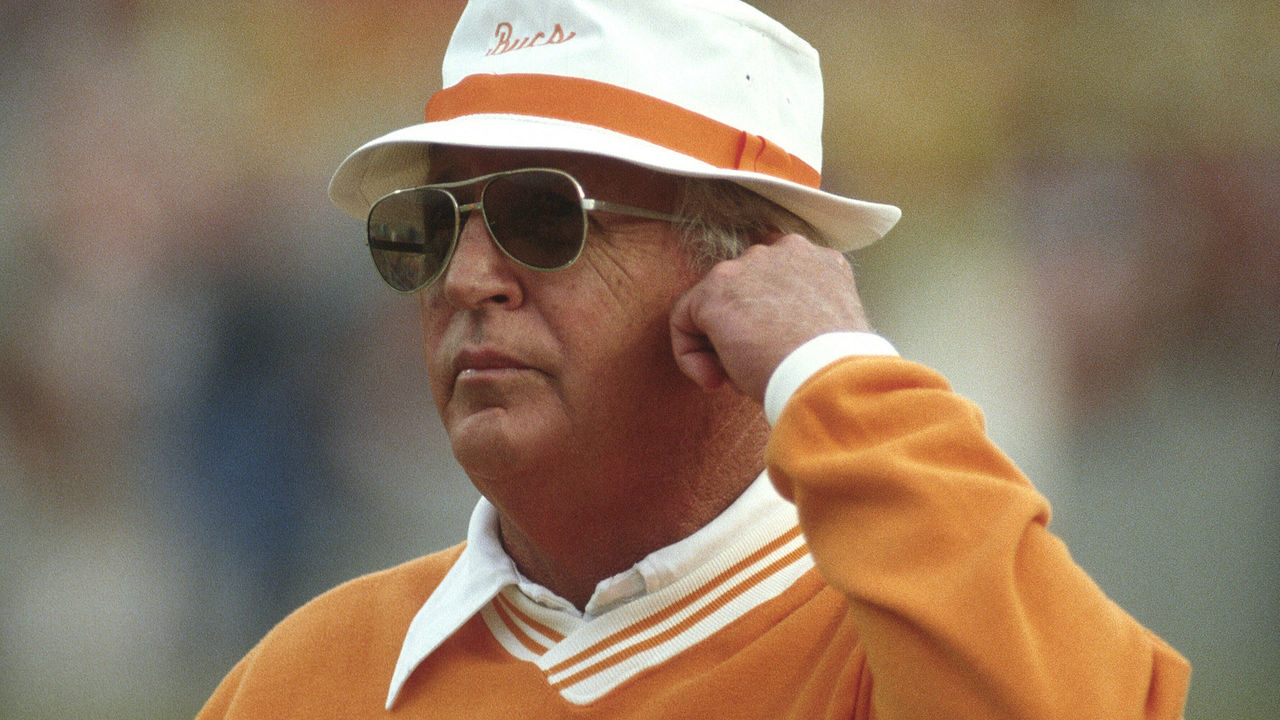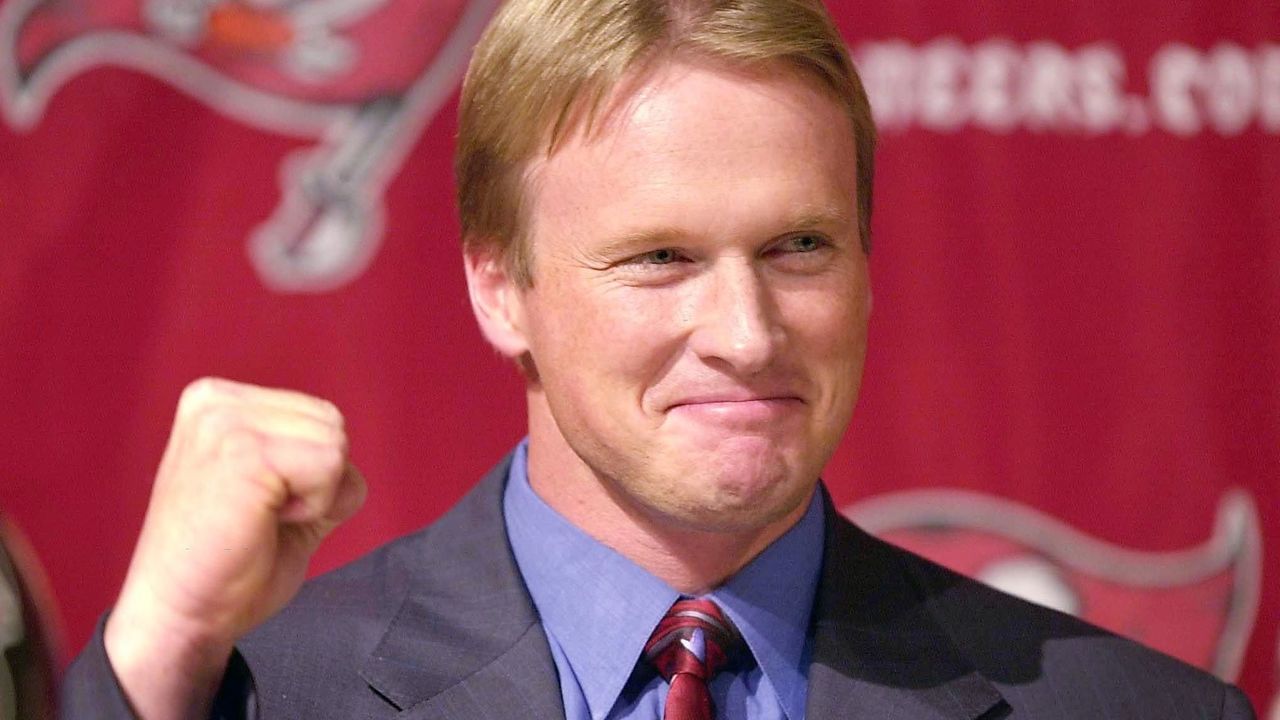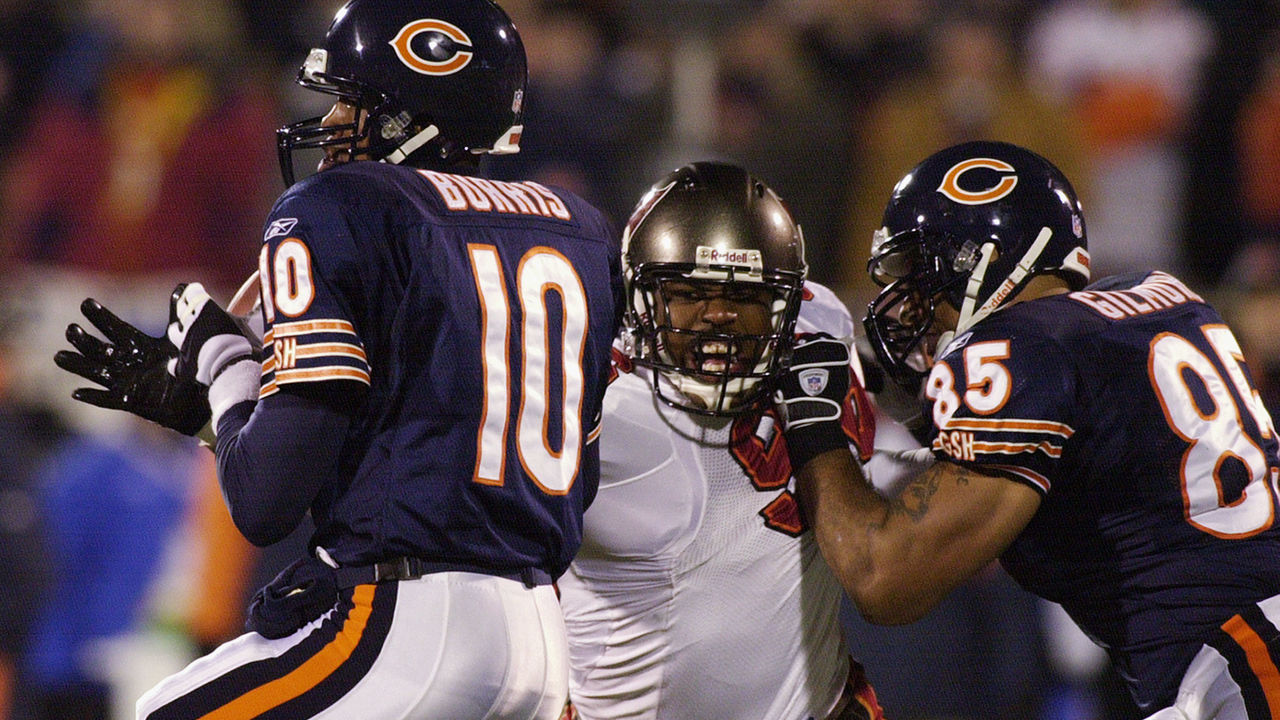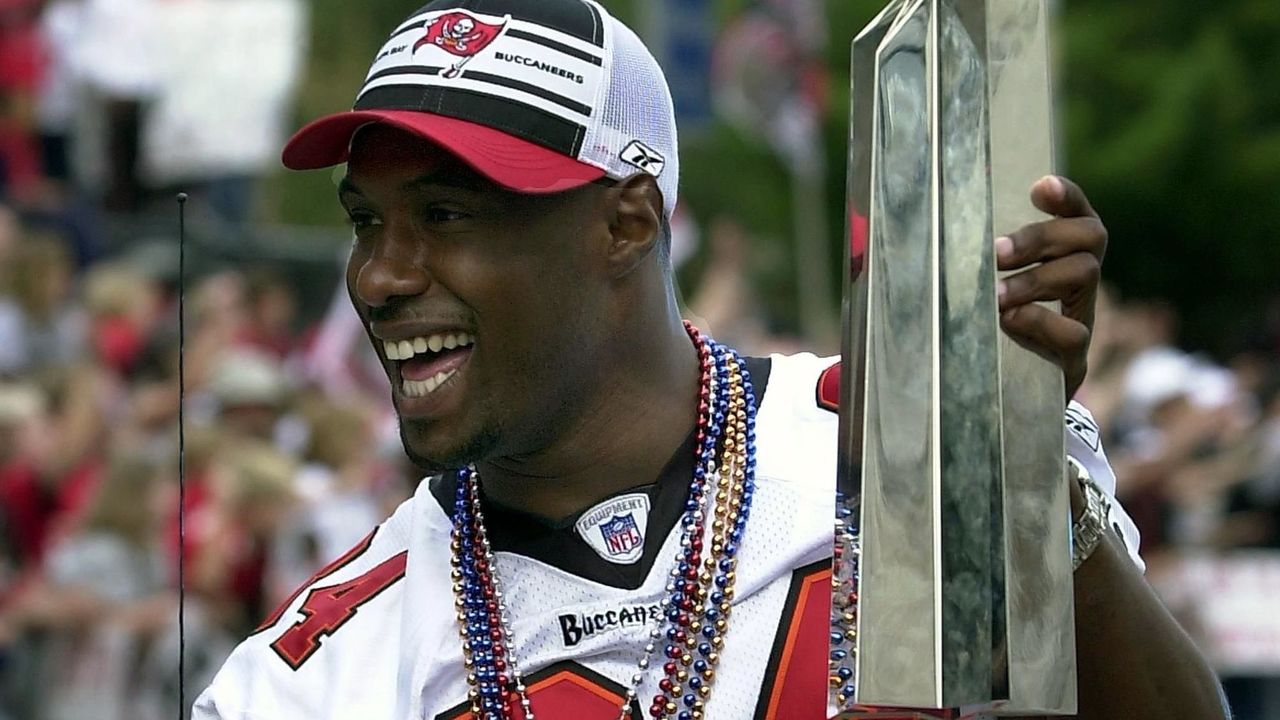The Super Bowl champion Buccaneers were the ultimate outliers
Following our recent series on the best teams never to win their league's championship, we're flipping the concept. This series will examine a selection of the most unlikely teams to reach the mountaintop. These teams can be ones that got hot at the right time, or those who belong to franchises that have not often tasted the Champagne of champions. The series began with Major League Baseball.
If you had to name the one champion that was the most unlikely to win a Super Bowl, which would you choose? It might depend on your interpretation of the question.
The 1968 Jets proved the AFL was on par with the NFL soon after the leagues agreed to merge. The 1980 Raiders were the first wild-card team to run the table. The 2007 Giants revealed that the Patriots were mortal, and the 2011 Giants somehow repeated the feat. The 1997 Broncos, 2001 Patriots, and 2005 Steelers were all, in their own way, improbable champions. But those franchises are consistent winners and models of stability. Relative to the Tampa Bay Buccaneers' history, the 2002 team truly stands alone.
The Bucs have been around since 1976. By a wide margin, Tampa Bay has amassed the NFL's worst all-time winning percentage (.387) among active franchises. In 44 years, the Bucs have managed just 13 winning seasons. From 1983 to 1994, they lost at least 10 games every year - and did it again in 1996. The Bucs once drafted the wrong player in the first round, only to chase that boner by trading away the following year's first-round pick to select the player they initially wanted. Dude turned out to be a bust anyway.
Tampa Bay has only been to the playoffs 10 times, and it last reached the postseason in 2007. That was five head coaches ago. Only the Cleveland Browns (2002) have a longer active postseason drought. In sum, the Bucs stink.

But in 2002, in what still seems like an accident of history, the Bucs won the Super Bowl. And they did it decisively, powered by one of the greatest defenses the NFL has ever seen. It was the culmination of a six-year show of competence in which the Bucs tied for the second-most wins in the league, a window of opportunity that stayed open just long enough to allow the stench to escape. But that window quickly closed, and it has pretty much stayed shut. The 2002 team basically headlined the franchise halftime show for a long-running mistake.
Tampa Bay's brief but steady improvement began in 1996 with the arrival of head coach Tony Dungy. A former NFL defensive back who spent years as a defensive assistant and coordinator, Dungy installed what's popularly known as the "Tampa 2" defense, which is a variation of a Cover 2 (think two deep safeties) with the added wrinkle of dropping the middle linebacker into coverage to morph into a Cover 3. It became a league staple for a while.
The Bucs won a playoff game in Dungy's second season, and by 1999 they reached the NFC Championship Game. From 1999 to 2001, the Bucs' defense ranked in the top five in Football Outsiders' DVOA. But after road playoff losses against the Eagles in 2000 and 2001, Dungy was fired. The Bucs replaced him by trading for their next coach after failing to lure Bill Parcells out of retirement.
In the sort of deal that wasn't all that uncommon at that time, the Bucs traded two first-round draft picks, two second-rounders, and $8 million in cash to the Raiders to acquire Jon Gruden, a 38-year-old firebrand who had guided Oakland to a pair of playoff appearances in four seasons.

The addition of the expansion Houston Texans in 2002 brought the NFL to an even 32 teams and informed a geographic realignment that moved the Bucs from the old NFC Central to the new NFC South, where they'd be competing with the Saints, Falcons, and Panthers.
Gruden committed to running the ball while also installing his horizontal West Coast-style passing attack. He added wideout Keenan McCardell and running back Michael Pittman in free agency. Crucially, Gruden retained most of the defensive staff, including coordinator Monte Kiffin and defensive backs coach Mike Tomlin, the current head coach of the Steelers. The "Tampa 2" scheme likewise remained in place.
On offense, 34-year-old journeyman Brad Johnson was the Bucs' quarterback. He was good enough to minimize mistakes and to efficiently handle the West Coast's reliance on short, timing-based throws. Complementing Johnson in the backfield were Pittman and fullback Mike Alstott, a human cue ball who specialized in making would-be tacklers bounce right off him:
As an indicator of their versatility - and of Gruden's and offensive coordinator Bill Muir's ability to create mismatches - Pittman and Alstott combined to rush for nearly 1,300 yards and to catch 94 passes. On the outside, the Bucs paired McCardell with standout Keyshawn Johnson. They also had a solid tight end in Ken Dilger.
But the defense, which was stacked with talent, was the real engine of the operation. Defensive tackle Warren Sapp and outside linebacker Derrick Brooks were future Hall of Famers. Simeon Rice was a pass-rushing monster. Ronde Barber and Brian Kelly manned the corners, with Dexter Jackson at free safety and current 49ers general manager John Lynch at strong safety. Dwight Smith was the nickel corner. It was hard to identify a weakness - and few teams could.
After starting the season with an overtime loss at home to the Saints, the Bucs didn't allow a touchdown in four of their next five games. They even throttled the defending NFC champion Rams on Monday Night Football. In Week 6, the Eagles beat them in Philly, but the Bucs followed that by taking out the Panthers twice and grinding out a home win against the Packers, their old NFC Central nemeses. At Thanksgiving, the Bucs were 9-2. Heading into their Week 17 finale at the 4-11 Bears, they had already won the division. But they still had a strange demon to exorcise.
In their 27-season history, the Bucs had never won a game when the temperature at kickoff was below 40 degrees Fahrenheit - 21 losses in 21 games. It was a bizarre stat, but it was indicative of their longstanding futility and second-class status - a football team that couldn't win in football weather. The game-time temperature in Chicago on Dec. 29, 2002, was 38 degrees. With Brad Johnson nursing an injury, Rob Johnson started in his place. Martin Gramatica kicked five field goals, and the Bucs picked off Bears QB Henry Burris four times in his only NFL start. Tampa Bay won 15-0, ending its cold streak. The playoffs awaited.

The Bucs finished the regular season with a record-setting defense that led the league in most categories and also stacked up well against history, per Pro Football Reference:
- 196 points allowed, which remains the sixth-fewest since the NFL schedule expanded to 16 games in 1978;
- 155.7 passing yards per game allowed, which is fourth-best since 2000;
- 50.8% completions allowed, which is second-best since 2000;
- 48.4 passer rating against, which remains the lowest since 1988.
In addition, according to Football Outsiders, the 2002 Bucs' defense ranks fifth all-time in DVOA. Their pass defense, which picked off 31 passes and returned four for touchdowns, posted what remains the best DVOA ever. And they still weren't done.
In the divisional round of the playoffs, the Bucs thumped the 49ers 31-6, posting four sacks and picking off Jeff Garcia three times. The NFC Championship Game meant another trip to Philly to face the top-seeded Eagles in what would be the last game at old Veterans Stadium. Not only that, but the game-time temperature was 26 degrees.
The game began ominously for Tampa Bay, with the Eagles' Brian Mitchell returning the opening kickoff 70 yards and Duce Staley running right up the middle for a 20-yard touchdown on the second play from scrimmage. The Vet shook to its core. I lived in suburban Philly at the time and remember thinking to myself at that moment that the Bucs didn't stand a chance. I clearly underestimated them.
Tampa Bay answered by marching up the field for a field goal, thanks in part to some use of no-huddle to change the tempo. A few possessions later, on third-and-2 from the Bucs' 24, Brad Johnson connected with wideout Joe Jurevicius on a simple crossing route. Jurevicius wound up getting to the corner and racing 71 yards before finally being hauled down at the 5. The Vet went quiet, and it would largely stay that way.
The game's indelible moment came near the end, with the Eagles trailing by 10 but driving to stay alive. With 3:12 left, Barber intercepted Donovan McNabb and raced into the stunned silence of the doomed stadium for a 95-yard touchdown. The Bucs - the Bucs! - were going to the Super Bowl.
Coincidentally, Super Bowl XXXVII pitted Tampa Bay against the same Oakland Raiders who had traded them Gruden 11 months earlier. That would prove fortuitous for the Bucs. They were able to correctly diagnose what the Raiders were going to do, allowing them to tee off on an offense that featured 2002 league MVP Rich Gannon and Hall of Fame wideouts Tim Brown and Jerry Rice.

An NFL Films clip captured this perfectly, with a mic'd-up Lynch calling out to Jackson exactly what Gannon was about to do just before Jackson - the game's MVP - snared one of his two interceptions. In another clip, Lynch could be overheard telling Tomlin, "Every play they've run, we ran in practice. It's unreal."
The Bucs destroyed the Raiders 48-21. Their defense limited Oakland to three first downs and 62 yards in the first half. By the time it was over, they had picked off Gannon five times, with three being returned for touchdowns, including two by Dwight Smith. Gruden was so excited he damn near tripped over a Raiders player during one of those pick-6s:
All told, the Bucs' D finished the regular season and playoffs with nine returns for touchdowns, including eight via interceptions. It was a masterpiece of a season that concluded with a near-perfect finishing touch. The good times just didn't last.
Gruden stayed in Tampa Bay for another six seasons, guiding the Bucs to just two postseason appearances that both ended with losses in the wild-card game. As a franchise, Tampa Bay mostly reverted to form after 2002; the Bucs' .393 winning percentage in the 17 seasons since is the fourth-worst in the league. Twelve franchises have never won a Super Bowl. Somehow, the Bucs aren't one of them. It remains the league's biggest upset.
Dom Cosentino is a senior features writer for theScore.